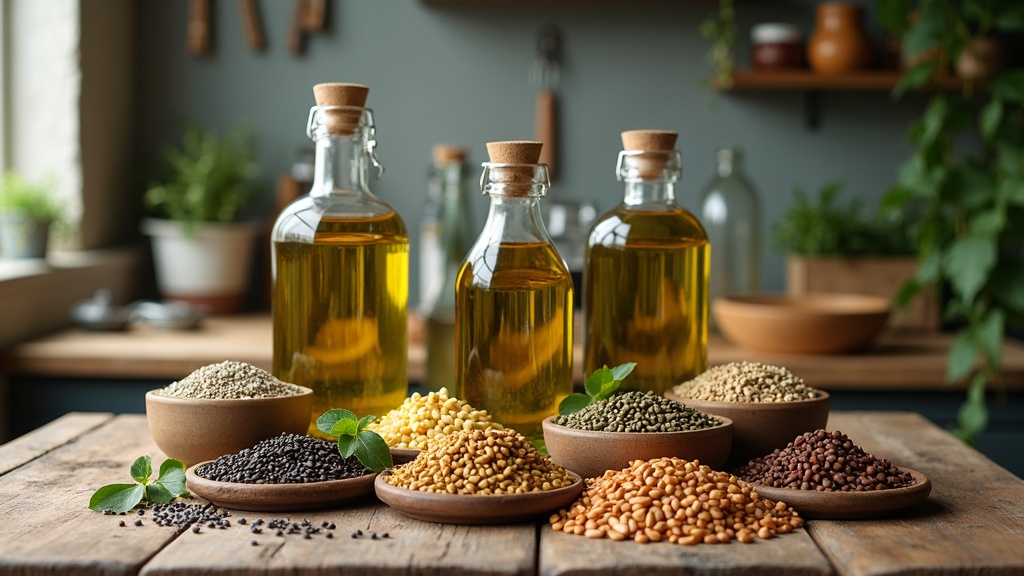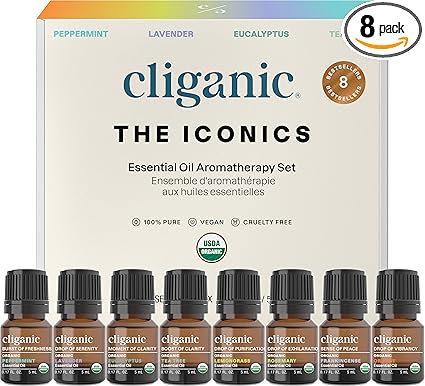Influencer marketing touches just about every part of our daily lives, and health advice on oils is especially prominent on social media. I frequently notice influencers on YouTube, Instagram, and TikTok talking about why a certain oil is “the healthiest choice” or urging everyone to avoid certain seed oils. The thing I want to know is whether these bold claims about oil benefits from influencers have any scientific backbone, or if they’re mostly just hype.

Oil Trends on Social Media: What Influencers Are Saying
In the past few years, I’ve observed a big uptick in posts about oils for health—focusing especially on coconut, olive, avocado, and seed oils like sunflower and canola. Loads of influencers recommend replacing basic vegetable oils with more “natural” options. Some talk up ghee or butter, while others recommend avoiding seed oils completely because of supposed ties to inflammation or chronic disease.
Influencers often claim certain oils help with weight loss, boost heart health, or make your skin glow. These opinions can spread quickly, thanks to fitness or nutrition influencers with massive followings. Sometimes, brands sponsor these posts; other times, influencers just share their personal favorites in hopes of helping people make better decisions.
Understanding the Seed Oil Controversy
The seed oil controversy has really picked up online. It’s all about whether oils made from seeds like sunflower, canola, soybean, and corn are bad for your health. Certain influencers insist that seed oils are “toxic” and drive up inflammation, making you more likely to develop chronic illnesses.
Lots of these opinions build on the fact that seed oils are high in polyunsaturated fats like omega-6 fatty acids. Omega-6s are essential to our diets, but some believe that if you eat too many without balancing them with omega-3s, it could trigger inflammation. There’s a little truth here, but when I dig into research from trusted health organizations like the American Heart Association (AHA reference), I don’t see strong, long-term evidence proving that seed oils are risky if eaten in sensible amounts as part of a balanced diet.
For most of us, the pattern of our overall diet and how much oil we eat are much more important than whether we cut out all seed oils. Moderation plus variety is key—science doesn’t support the idea that these oils are outright villains.
The Science Behind Influencer Claims
It’s easy to feel lost in influencer advice, especially since many toss around studies or share impressive, personal success stories. I’ve checked the actual science on oils, and here’s what stands out:
- Olive Oil: Well-studied for its impact on heart health, especially extra virgin olive oil. The popular Mediterranean diet, which features olive oil as a staple, is tied to lower heart disease rates. Its monounsaturated fats and polyphenols (antioxidants) are central to these benefits. There’s loads of peer-reviewed evidence for this.
- Coconut Oil: Trendy and widely used, but high in saturated fat. Scientific studies show it can increase both HDL (good) and LDL (bad) cholesterol. The American Heart Association advises us to limit saturated fat, so I use coconut oil only once in a while, not as a primary fat source.
- Avocado Oil: Similar in fat profile to olive oil, packed with monounsaturated fats. Evidence for health benefits is growing, with a lot of the same perks thanks to its healthy fat content and antioxidants.
- Seed Oils (Sunflower, Canola, Soybean): Loaded with unsaturated fats, especially omega-6s. Swapping out saturated fats for these can lower bad cholesterol. Excessive omega-6 without enough omega-3 might be an issue, but eating a mix of fats and whole foods is far more important, according to Harvard’s School of Public Health (Harvard reference).
Many influencer posts cherry-pick evidence or zoom in on a single nutrient or effect, sometimes missing the big picture. Recommendations from big health organizations are way more reliable than one-off hot takes from your feed.
Which Oil Is the Unhealthiest?
As I looked deeper, I found that there’s no oil that is always the healthiest or the unhealthiest; it depends on the type and how much you use. That said, eating loads of oils high in saturated or trans fats can set you up for health issues.
Partially hydrogenated oils, common in margarine and processed foods, contain trans fats, which are closely linked to higher LDL cholesterol, lower HDL, and a raised risk for heart disease. The Food and Drug Administration has acted on this, moving to ban trans fats in processed foods in recent years (FDA reference).
Palm oil is super high in saturated fats and shows up in all sorts of packaged snacks. While not as damaging as trans fats, eating too much saturated fat from palm, coconut, or animal fats can also contribute to cholesterol problems for some people.
Personally, avoiding oils packed with trans fats is at the top of my list. For meal planning, I go for oils with mainly unsaturated fats and minimize saturated fat across the board.
Which Oil Actually Offers the Most Health Benefits?
After skimming through large studies and hearing from registered dietitians, I keep coming back to extra virgin olive oil as the oil with the strongest, most reliable evidence for health perks. It slashes your risk of heart disease, supports good cholesterol, and is packed with antioxidants. The Mediterranean diet depends on it, and it’s often the top pick from professionals.
Avocado oil offers a nice backup when I want a neutral taste for hotter cooking, with most of the same good fats as olive oil. Occasionally, I add a bit of flaxseed oil for plant-based omega-3s in cold dishes, but it isn’t ideal for heat.
Mixing and matching these oils fits my cooking and nutrition needs. Keeping the processed, hydrogenated oils off my shopping list, sticking to unsaturated fats, and watching portion size are all habits that get the stamp of approval from scientific reviews (NCBI review). Adding some variety in oil choices also brings more flavors and nutrients to meals.
How I Evaluate Influencer Oil Advice
Here’s my checklist before taking any oil advice from influencers:
- I see if they link to real scientific studies instead of only quoting other influencers or quoting brand marketing.
- I check who is behind the advice, looking for actual health, nutrition, or medical credentials.
- I weigh what I see against trusted sources like the American Heart Association, World Health Organization, or government health agencies.
- I look for advice that feels balanced. Extreme claims—like avoiding all seed oils or only using coconut oil—instantly raise my suspicions because true nutrition science is rarely so black-and-white.
The bottom line: Social media can be a great jumping-off point, but I never make it the final word, especially for anything as important as nutrition.
Practical Tips for Choosing Cooking Oils
Here’s my playbook for picking cooking oils, based both on solid evidence and real world experience:
- For salads or drizzling on finished meals, I use extra virgin olive oil or flaxseed oil for those good fats and antioxidants.
- When frying or roasting at high temperatures, avocado oil or canola oil work well since they don’t break down easily and taste neutral.
- I avoid margarine or processed foods made with hydrogenated or partially hydrogenated oils (those are the main sources of artificial trans fats).
- I scan nutrition labels and steer clear of oils packed with saturated fat or lots of extra additives.
- Most importantly, I keep my oil selection mixed up to get a spread of nutrients and keep meals interesting.
Experimenting with a range of healthy oils in your kitchen ensures better flavor and a stronger nutritional profile, without having to rely on one “trendy” pick.
Frequently Asked Questions
Question: What is the seed oil controversy and should I be worried?
Answer: The seed oil debate is mostly about whether common oils like sunflower, canola, and soybean cause inflammation or disease. The current science doesn’t say these are “toxic” when eaten in moderation—using balance and variety is key. If you have medical conditions, a registered dietitian or doctor is your best bet for personalized advice.
Question: What is the most unhealthy oil for you?
Answer: Oils made with artificial trans fats—like those from partially hydrogenated oils—pose the greatest health risks. Regularly eating lots of saturated fats from oils such as palm or coconut isn’t great either. Stick mainly to unsaturated fats for improved heart health.
Question: Which oil has the most health benefits?
Answer: Extra virgin olive oil is the most thoroughly studied and beneficial for the heart. Avocado oil is a solid runner-up, and flaxseed oil is useful for plant-based omega-3s, though only in cold meals.
Whenever I scroll past the latest oil trends from influencers, I double-check before making any pantry upgrades. Mixing in a little research, keeping my options open, and being practical helps me make smart oil choices—no influencer hype required.


